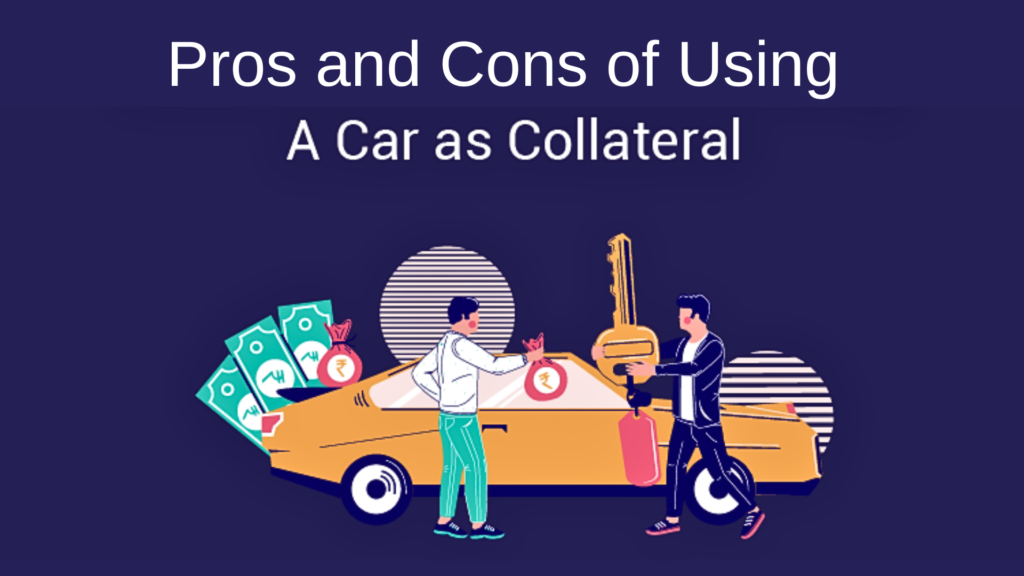Are you in a jam and need some cash real quick? Did you know you can get a personal loan using your car as collateral or security? Many people consider using their car as collateral because using the equity in their car to back the loan can lead to lower interest rates or a higher loan amount, depending on the lender.
Although using your car as collateral might seem like a simple solution to your problem right now, you must understand how it works, where to get such a loan, the benefits and risks involved, and what happens if you can’t repay it on time. We’ll explore all of these in greater detail.
How to Get an Auto Equity Loan Using Your Car as Collateral
An auto equity loan is one of the main ways to use your car as collateral for a loan. In this case, the lender uses the value of your car as security for the loan. Typically, you can borrow up to a certain percentage of the value of your car, which varies depending on the lender, your car’s condition, and the amount of equity you have in the car.
Here’s how you can get an auto equity loan:
- Determine the Value of Your Car: You must know your car’s value before applying. Many lenders use the Kelley Blue Book value or a similar service to assess the car’s market value.
- Check Your Equity: Equity is the difference between your car’s current value and any outstanding loan balance you might still owe on it. For example, if your car is worth $10,000 and you owe $3,000, you have $7,000 in equity.

- Apply for an Auto Equity Loan: Once you know your equity, you can apply for the loan. The lender will evaluate your application based on your car’s value, credit history, and ability to repay the loan. If approved, your car will be used as collateral until the loan is fully paid back.
- Agree to Loan Terms: You must agree on the loan amount, interest rate, and repayment terms. The better your credit score, the more favorable your loan terms will likely be.
- Use the Loan Funds: After the loan is approved, you can use it for whatever you need. Remember that if you fail to pay back, the lender may have the right to repossess your car.
ALSO READ: Can You Trade in a Car With a Loan?
Using Your Car as Collateral for a Title Loan
A title loan is not a car loan but another common type of loan involving your car. It works similarly to an auto equity loan, but the process is usually much faster, and the loan term is shorter. With a title loan, you’re using your car title as collateral, and the lender keeps the title until the loan is paid back.
Here are a few points to keep in mind with title loans:
- High Interest Rates: Title loans often have very high interest rates, sometimes 300% APR. This can lead to a cycle of debt if you’re unable to pay back the loan on time.

- Loan Term: Title loans usually have shorter repayment periods than traditional auto equity loans, often requiring repayment within 30 days.
- Repossession: Just like with an auto equity loan, if you don’t pay back a title loan, your car may be repossessed.
Key Factors to Consider Before Using Your Car as Collateral for a Loan
While using your car as collateral can be a good option for some borrowers, it’s not a decision to take lightly. Here are a few key factors to consider before moving forward:
- Your Ability to Pay Back: The most critical factor is the ability to pay back the loan comfortably and on time. If you’re unsure about your ability to repay the loan, it may be better to look for other options.
- The Loan-to-Value Ratio: This ratio refers to how much of your car’s value you can borrow. Lenders may offer loans ranging from 25% to 70% of your car’s estimated value. Ask your lender about their maximum loan-to-value ratio to know how much you can borrow.

- Interest Rates and Fees: A low interest rate could save you a lot of money, while high fees might reduce the benefits of using your car as collateral. So, pay close attention to the loan’s interest rates and any additional fees.
- Alternative Options: Consider other financial options before agreeing to an auto equity loan. You might be able to get an unsecured personal loan at a lower interest rate or use other assets as collateral if they carry less risk than your car.
If you’re wondering, “Where can I get a loan using my car as collateral?” several financial institutions offer auto-equity loans that allow you to use your car as collateral. These include banks, credit unions, online lenders, and title loan companies.
ALSO READ: Can You Get a Loan Using Your Car As Collateral?
Pros and Cons of Using Your Car as Loan Collateral
Before deciding to use your car as collateral, it’s essential to consider the pros and cons.
Pros:
- Lower Interest Rates: Secured loans, like those backed by collateral, usually offer lower interest rates than unsecured loans. The lender bears less risk because they have your car as security, which may result in better terms for you.
- Higher Loan Amount: If you have a sizable equity in your car, you may be able to borrow more than you could with an unsecured personal loan.
- Approval With Bad Credit: If your credit score isn’t very good, using your car as collateral might make getting approved for a loan easier. This is because lenders are often more willing to work with people with bad credit if collateral is involved.

Cons:
- Risk of Losing Your Car: The biggest downside to using your car as collateral is that you could risk losing it through repossession if you’re unable to make the loan payments.
- Car Depreciation: Cars depreciate very quickly, and if your car loses value faster than you can pay off the loan, you could end up owing more than your car is worth.
- Possibility for High Fees: Some lenders charge high fees for auto equity loans, especially if you have bad credit. Make sure to read the contract.
Is Using Your Car as a Collateral a Good Idea?
If you’re in desperate need of money, instead of the option of transferring your car loan to another person, you can try using your car as collateral for a personal loan.

Also, whether you’re exploring an auto equity loan or considering a title loan, it’s essential to research, compare interest rates, and ensure that you’re making the right choice for your financial situation.
If you’re not sure, it might be a good idea to speak with an expert to discuss all of your options before making a final decision.

